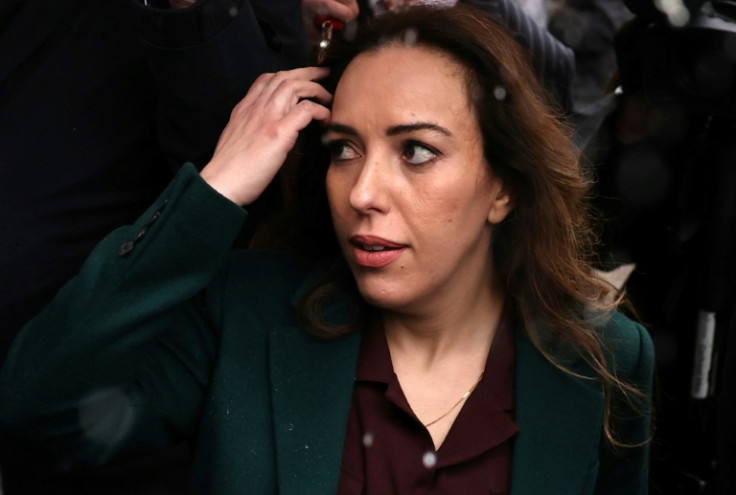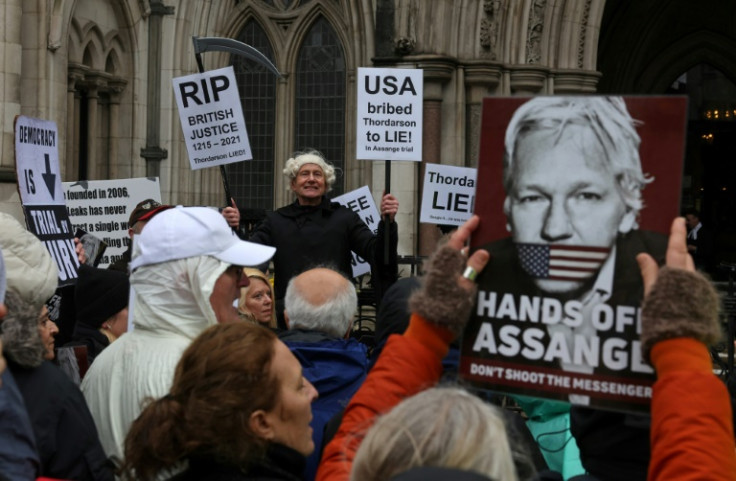Assange To Learn Fate Of Latest Extradition Appeal Bid

WikiLeaks founder Julian Assange will learn Tuesday if he can mount a likely final UK challenge against extradition to the United States to stand trial for publishing secret military and diplomatic files.
Washington wants the 52-year-old Australian citizen to face charges there in connection with WikiLeaks' 2010 publication of hundreds of thousands of files relating to the US-led wars in Iraq and Afghanistan.
In the latest twist in the long-running legal saga, which has seen Assange lose successive bids to halt the process, two High Court judges in London will rule on whether he can lodge a fresh appeal.
Their decision is due to be published at 1030 GMT.
If it favours Assange, who has been held at a high-security London prison on remand since 2019, he will have another chance to argue his case in court, with a date set for a full hearing.
If he loses, he will have exhausted all UK appeals and will enter the extradition process, although his team have indicated they will appeal to European courts and would be given 14 days to do so.
The United States indicted Assange multiple times between 2018 and 2020 but US President Joe Biden has faced persistent domestic and international pressure to drop the case filed under his predecessor Donald Trump.
Major media organisations, press freedom advocates and the Australian parliament have all denounced the prosecution under the 1917 Espionage Act, which has never been used over the publishing of classified information.
Washington alleges that Assange and others at WikiLeaks recruited and agreed with hackers to conduct "one of the largest compromises of classified information" in US history.
During two days of legal argument in February, lawyers for the US government defended the case on various legal grounds to judges Victoria Sharp and Jeremy Johnson.
Lawyers for Assange submitted that the charges were "political" and that he was being prosecuted "for engaging in ordinary journalistic practice of obtaining and publishing classified information".
They also argued that the decades-long prison sentence he faces if convicted was "disproportionate", and Washington had acted in "bad faith", contravening its extradition treaty with Britain.
Before going to prison, Assange spent seven years holed up in Ecuador's London embassy.
He fled there to avoid extradition to Sweden, where he faced accusations of sexual assault which were later dropped.
The High Court had blocked his extradition, but then reversed the decision on appeal in 2021 after the US vowed not to imprison him in its most extreme prison, "ADX Florence".
It also pledged not to subject him to the harsh regime known as "Special Administrative Measures".
In March 2022, the UK Supreme Court refused permission to appeal, arguing Assange failed to "raise an arguable point of law".
Months later, ex-interior minister Priti Patel formally signed off on his extradition.
Assange is now seeking permission to review that decision and the 2021 appeal ruling.



© Copyright AFP 2024. All rights reserved.





















